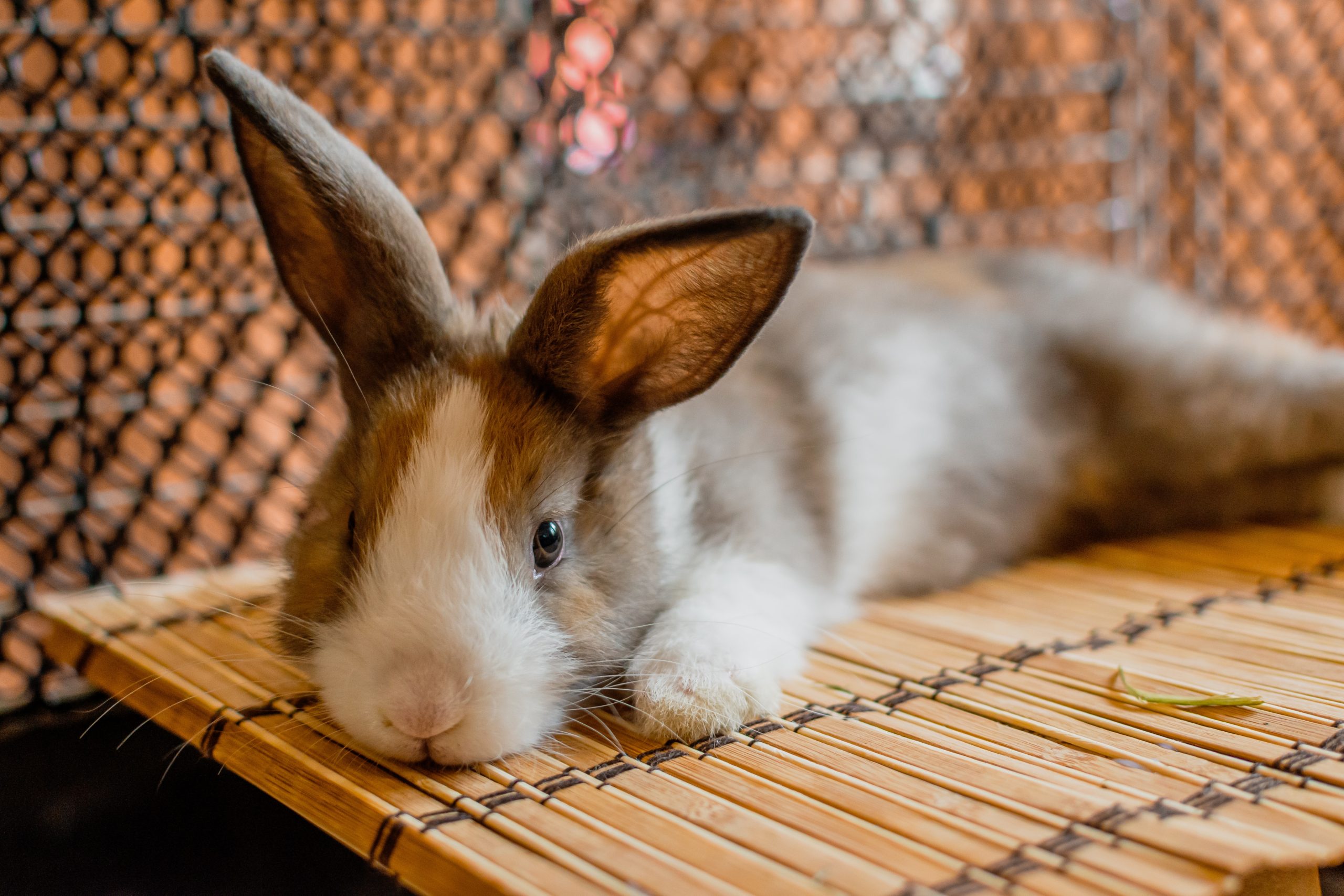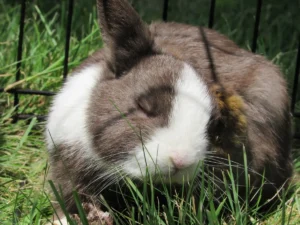If you’re concerned about your floppy rabbit’s health, you may be wondering, ‘How long does floppy rabbit syndrome last?’
In this article, we’ll dive into the details of this condition, including its symptoms, potential causes, and the recovery process. By the end, you’ll have a better understanding of how long FRS can persist.
So, let’s get started and ensure your furry friend gets the care they need.
In This Article
Key Takeaways
- Floppy Rabbit Syndrome (FRS) can last for several weeks to months, depending on the severity and effectiveness of treatment.
- The exact duration of FRS varies for each individual rabbit.
- Long-term effects of FRS may include muscle weakness, loss of coordination, and difficulty hopping and walking.
- Providing proper care and treatment can help minimize the long-term effects of FRS.
Understanding Floppy Rabbit Syndrome
Do you understand what causes Floppy Rabbit Syndrome?
It’s a condition that affects rabbits, causing weakness and loss of muscle tone, often leading to a floppy appearance.
The exact cause of this syndrome isn’t fully understood, but it’s believed to be multifactorial, with various factors contributing to its development.
There are several treatment options available for rabbits with Floppy Rabbit Syndrome, including physical therapy, supportive care, and medications to manage symptoms.
Prevention strategies for Floppy Rabbit Syndrome mainly revolve around proper nutrition, maintaining a clean and safe environment, and regular veterinary check-ups.
Recognizing the Symptoms of FRS
You can easily recognize the symptoms of FRS by observing your rabbit’s weakness and loss of muscle tone. Floppy Rabbit Syndrome (FRS) is a condition that affects rabbits, causing them to become weak and floppy. It can be a distressing experience for both the rabbit and their owner.
Here are some key symptoms to look out for:
- Weakness: Your rabbit may have difficulty moving and may seem lethargic.
- Loss of muscle tone: Their muscles may appear flaccid and lack their usual firmness.
- Difficulty standing or hopping: Your rabbit may struggle to maintain their balance and have trouble hopping around.
If you notice these symptoms in your rabbit, it’s important to consult a veterinarian for a proper diagnosis. The treatment options for FRS vary depending on the underlying cause and severity of the condition. Your vet may recommend supportive care, physical therapy, or specific medications to help manage the symptoms and improve your rabbit’s quality of life.
Exploring the Potential Causes of FRS
There are several potential causes of FRS, and exploring them can help determine the best course of treatment for your rabbit. Understanding the underlying factors can guide your decisions in providing the most effective care for your furry friend. Research on FRS is ongoing, and scientists are constantly uncovering new information about this condition. By staying informed about the latest developments, you can make informed decisions about treatment options for your rabbit. Below is a table summarizing some of the potential causes of FRS and the corresponding treatment options that may be considered:
| Potential Causes | Treatment Options |
|---|---|
| Neurological | Medications, Physical Therapy |
| Nutritional | Diet modifications, Supplements |
| Trauma | Rest, Pain Management |
The Recovery Process for Floppy Rabbit Syndrome
Fortunately, the recovery process for Floppy Rabbit Syndrome can be slow but steady, and with proper care and treatment, your rabbit can regain their mobility. It’s important to remember that every rabbit’s recovery timeline may vary, but there are rehabilitation techniques that can aid in their recovery.
Here are three important factors to consider when managing the long-term effects of Floppy Rabbit Syndrome:
- Physical therapy: Engaging in gentle exercises and stretches can help improve your rabbit’s muscle strength and coordination. Physical therapy sessions, under the guidance of a veterinarian or a professional animal therapist, can be beneficial in restoring mobility.
- Supportive care: Providing a comfortable and stress-free environment is crucial for your rabbit’s recovery. This includes providing soft bedding, ensuring proper nutrition, and maintaining a quiet and calm atmosphere.
- Medication and supplements: Your veterinarian may prescribe medication or supplements to help manage pain, inflammation, and promote nerve regeneration. It’s important to follow their guidance regarding dosage and usage.
How Long Can FRS Last?
FRS can last for several weeks to months depending on the severity of the condition and the effectiveness of the treatment. It is important to understand the duration of Floppy Rabbit Syndrome (FRS) as well as its long-term effects. To help you visualize the information, here is a table that outlines the duration and long-term effects of FRS:
| Duration of FRS | Long-term Effects of FRS |
|---|---|
| Several weeks to months | Muscle weakness |
| Depends on severity and treatment effectiveness | Loss of coordination |
| Varies for each individual | Difficulty hopping and walking |
As you can see, the duration of FRS can vary, but it typically lasts for several weeks to months. During this time, rabbits may experience muscle weakness, loss of coordination, and difficulty hopping and walking. It is important to provide proper care and treatment to help rabbits recover and minimize the long-term effects of FRS.
Frequently Asked Questions
Can Floppy Rabbit Syndrome Be Prevented?
To prevent floppy rabbit syndrome, you can take certain prevention methods. Regularly check your rabbit for any signs of weakness or paralysis. Early detection is key in treating this condition effectively.
Is Floppy Rabbit Syndrome Contagious to Other Rabbits?
Floppy Rabbit Syndrome, or FRS, is not zoonotic. It cannot be transmitted to humans. However, it is important to isolate infected rabbits to prevent spreading it to other rabbits.





